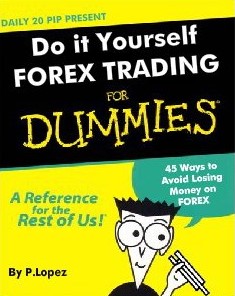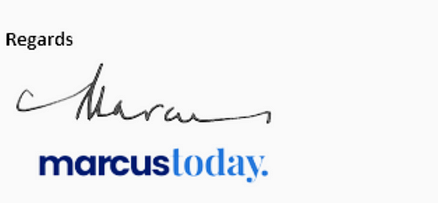Why They Want You to Trade Forex
You’ve probably seen the ad – “The average forex trader earns $100,000 to $2m a year, starting with as little as $10,000 in their trading accounts”.
The idea that you can easily speculate in foreign exchange from the comfort of your own home and mobile phone (and make money) is ridiculous. What could you possibly know about the future direction of the forex markets? What edge could you possibly have on the whole currency trading world? I’ll tell you. None. As the thousands of professional currency traders who throw themselves on the rocks every day trying to forecast the currency will tell you, there is nothing easy about forex. And they have been doing it for decades with the backing of billion-dollar banks and all the trading technology in the world.
And lest we not forget. Barings anyone?

Those ads showing 20-year-olds stepping out of limousines in New York trading forex on their mobile phone are one the most fantastic advertising deceptions you will ever see.
So why are the CFD providers so keen to offer us forex trading on our mobile phones?
Let’s explain what’s going on with CFDs.
The way the CFD industry used to work (it has got better, and there have been some structural changes) was to persuade you to put money in a trading account (into their bank account, in other words – much like a TAB account), and get you to trade it as much as possible on their flashy online platform until it was gone. And it almost always did… go, because almost all CFD traders have no edge, are leveraged (to losses), and are simply amateur gamblers pretending their gambling is somehow sophisticated because they are taking bets on financial market prices rather than horses. With inevitable consequences. But the ‘thrill’ is the same for the gambler. And they can do it at night, in the morning, at work. Not even the horses are open as long as the equity markets.
In the early years, the CFD providers moved into the ‘investment’ space slowly and offered CFDs (bets) on equity share prices. They pretended they were brokers, wore suits, got on the media, got AFSLs. And things moved on. Slowly.
Then something happened. A particular CFD provider realised that the more the amateur ignoramus traded, the quicker they lost their money. Leverage was good for blowing punters up quicker, but the equity prices lacked sex appeal and only traded between 10am and 4:10pm (when the equity market is open), and they only ticked (traded) maybe ten times a minute. At that speed, it was taking around three months before clients lost their stake.
So how could they get clients (mug punters) to trade more? Forex was the answer. Currency markets ticked every second for 24 hours a day. Whoopee doo. Forex markets were open all day, every day, with infinitely more ‘ticks’ (trades).
One provider started offering forex CFDs, the herd migrated to forex, and all the other CFD providers piled in behind.
Net result: the forex bunnies (sorry, clients) started blowing their stake money (which was already in the CFD provider bank account note) in one or two weeks of forex trading, instead of three months in equity CFDs.
And there were advantages. The forex market was much easier to explain than equities. Buying a BHP CFD implied you knew something about BHP. It was a very small target audience. But trading forex was simple to understand and appealed to a huge audience of financially unsophisticated punters who signed up in droves.
And it was sexy. Platforms started offering live pricing and one-second charts, and the action was available all day and all night. Fast and exciting. Online. And so it was that the CFD industry put a massive effort into getting you off equities and into forex by showing you ads about twenty-year-olds in New York limousines, and cheerful retirees looking at their iPads together in their kitchen, showing how easy it was and how clever you were if you did it.
Marcus Today contains stock market education, commentary and actionable ideas.
Sign up for a no-obligation 14-day free trial – click here.
But there was a hurdle. Teaching people how to use the platforms. It was a bit complicated and unassisted. Most punters tripped at the ‘too hard’ hurdle. So along came another essential ingredient to get people trading forex – ‘Education’.

Roll out the free two-hour seminar. Remember those? What better than a ‘free’ two-hour seminar in front of ‘live’ trading screens that teach you how to gamble on a CFD platform? Even better, you pay $2,000 for a two-day weekend seminar teaching you how to trade live on a CFD platform. Toss in a smattering of sophisticated jargon like doji and harami, and they sent you off empowered but ignorant with enough keywords to convince your partner that your gambling was a legitimate sophisticated investment plan. Until another $10,000 left the joint account the next month, and the next.
Also, unknown to the punter and now outlawed, when you attended those two-day seminars to learn how to use the gambling platform, if the ‘educator’ got you to sign up to the platform they trained you on, they earned a clip from the CFD platform on every trade you made on that platform. Some of the educators were earning close to $500,000 a month in clips from feeding people into the CFD sausage machine.
And what did they teach you? Technical analysis. Forex is perfect for charting, which means there are no fundamentals required. Fundamentals are time-consuming and, as such, present another barrier to trade. Teaching charts required you to learn a few basic technical patterns, and off you could go. I attended one of these two-day courses and heard the immortal line, “All you need to know are two basic chart patterns to get trading”. Good one.
:max_bytes(150000):strip_icc()/DojiDefinition-efc3ba7213db4200a0a69f354369960b.png)
Source: Investopedia
Other gripes. On top of stuffing you into a sausage machine that had one predictable outcome, hilariously, ridiculously:
- The CFD providers charge a commission for taking a bet where they stand to win if you lose (if a bookie did that at a racecourse, you would refuse to bet).
- Call themselves brokers, get AFSLs and appear in the media in suits and ties (much to the annoyance of brokers).
- Take the other side of your trade (so we are diametrically opposed to you making money), but call you a client and purport to service you.
- Only hedge you if you have a track record of making money (they rang every new customer to work out if you knew what you were doing and labelled punters from 1 to 5 – and only hedged the 5s).
- Charge you hypothetical interest on short and long positions they never actually take out. What a joke.
To the beginner, forex is compelling, convenient, leveraged, and action-packed. The software is sexy, and you can trade while the rest of us sleep. All night. With Big Mac mayonnaise dripping down your front. It’s miraculous, and it’s pathetic.
Sorry, but knowing about moving averages, doji and harami candles, support and resistance, head and shoulders, and any other tidbit you picked up in a free two-hour seminar doesn’t count.
The currency markets are a graveyard for the short-term retail speculator. There is no edge for the mortal man, no matter how many home-study videos you buy. The CFD providers have run riot in this space for years. Luckily the industry has caught up with them (a bit), and most of you have wised up to leveraged gambling on something you have no hope of getting consistently right on any timeframe.
Some other points on forex trading.
- It is very time-consuming. If you are going to sit all day stressing in front of a forex screen, you should be paid. Instead, your reward is unknown, likely to be a loss, and you would be better off having a regular job and financial certainty if you are going to put that much time in.
- It’ll disturb your real life – if you have a real life – how much of a distraction is your Aussie Dollar Deutsche Mark position going to be whilst you pack four kids off to school and hold down a proper job? If you are gambling at work, your career is going nowhere. At what cost?
- This is leveraged gambling – if you leverage and you’re a loser, you’ll lose more and lose it faster. It’s a key element of CFD trading – you are leveraged to your own stupidity. Great for the CFD provider.
- They only market the winners. You don’t hear about the losers because they are too embarrassed to tell anybody.
- It’s a vice – if your partner tells you they are trading forex, it is a massive red flag. It’s like finding out they are visiting the pokies on the way home from work. The beauty of betting on financial market prices is that the user (loser) can dress it up as a sophisticated investment and credit themselves with brains when they make money doing it. It’s not clever; it’s a gambler pretending it’s not gambling.
Forex trading for retail investors is/was a massive business, not because people make money, but because people love to gamble. The only difference is that trading the currency market sounds smarter than gambling, is online, uses attractive software and can be done on a mobile phone.
But the outcome is the same.
Footnote – The people who do make money out of currency are:
- Companies hedging – they obtain the value of certainty.
- There are some ‘systems’ that appear to work by exploiting tiny margins over long periods of time, but they fall over eventually because they have to man the desk 24/7 and pay people to do it.
- The major banks that see the real currency flows (they handle massive currency deals for corporates that have to move assets/money cross border) make money trading around the edges of those deals using that (inside) information with some advantage.

More about the author – Marcus Padley
Marcus Padley is a highly-recognised stockbroker and business media personality. He founded the Marcus Today Stock Market Newsletter in 1998. Over the years, the business has built a community of like-minded investors who want to survive and thrive in the stock market. This is achieved through a combination of daily stock market education, ideas and activities.